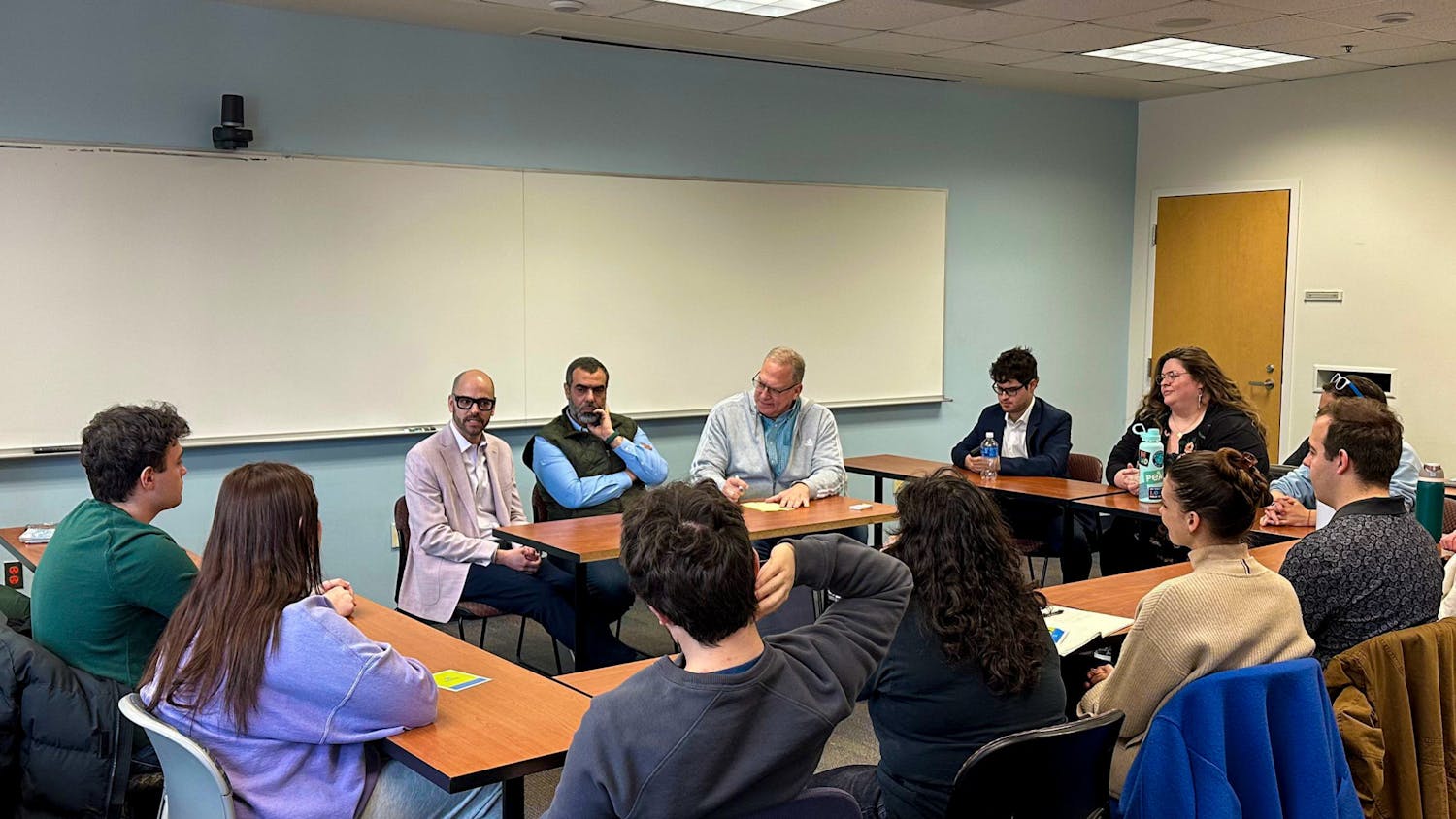Companies that own newspapers do not have a great commitment to investigative journalism, but journalistic quality has not weakened since the era of the Watergate investigation, a panel of journalists said at an American Forum Tuesday.
Patrick Sloyan, director of the Fund for Investigative Journalism, said the current trend at newspapers has been against investigative journalism. Three companies - Gannett, Tribune and Knight Ridder - have ousted editors at newspapers they own who support investigative pieces because they can be expensive to cover, he said.
"Corporate greed is ruining investigative journalism in this country today," Sloyan said. "... [Companies are] interested in advertising lineage and circulation."
Giant institutions now own much of the media and are infiltrating the four big national newspapers - The New York Times, The Washington Post, the Los Angeles Times and The Wall Street Journal, said Robert Kaiser, associate editor and senior correspondent of The Washington Post. The Tribune Company bought the Los Angeles Times, formerly a family-owned newspaper, in 2000, according to The Washington Post.
Despite the commercialization of the newspaper industry, true investigative journalists will do whatever it takes to get the story, said Deborah Nelson, Washington investigative editor of the Los Angeles Times. "All we can do is keep on fighting," she said.
Having the capability to imagine the impossible is an important quality to have as an investigative journalist, Kaiser said. Most journalists in the 1970s could not grasp how a story as big as Watergate should be covered, which is why only The Washington Post and The New York Times broke the story, he said.
"[Investigative journalism] wasn't so great in the seventies, and it isn't so awful now," Kaiser said.
Chris Stoughton, an audience member and a 2005 graduate of the School of Public Affairs, said the amount of space The Washington Post devotes to advertisements, as well as an apology the paper gave about its coverage of the events leading up to the war in Iraq, has made him distrust the newspaper.
"I would propose that mainly ... because The Washington Post, even if it might be owned by families, is more concerned about appeasing these corporate donations than it is about really doing serious investigative journalism," he said.
The Washington Post relies on advertisements for revenue because it is part of a capitalist business world, Kaiser said. The paper never apologized for pre-war coverage, which included six articles the Sunday before the war began that raised questions and uncertainties about the war, he said.
"... In 42 years of working at The Washington Post, no editor and no owner has ever said anything to me to suggest that we had to color a story ... a certain way because of the interest of an advertiser," Kaiser said.
While the breaking of Watergate was a huge achievement for investigative journalists, it was not the first time a scandal was exposed by intense investigation, Nelson said. Nellie Bly uncovered abuses against the mentally disabled at the turn of the century. More recently, the Boston Globe exposed instances of sexual abuse by Roman Catholic priests, she said.
"Investigative journalism didn't begin with Watergate, and it didn't end with it," Nelson said.
The forum was moderated by Mark McDonald, broadcast journalist-in-residence sand program director at WAMU. The forum was broadcast live on WAMU.




